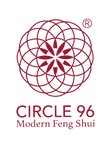Updated: Jan 7, 2021

Many have heard of Feng Shui but knew little of it. Those who believe and have benefited from it will swear to it. Those who don’t will continue to think that it is primitive, superstitious and non-scientific. To live in a conducive environment is the desire of all human beings regardless of race, religion or language. Indians practice Vastu; German’s practice Dowsing, Malays practice Tajul Muluk while English practice Ley Line. Depending on our comfort level and preference, we can choose from many forms of environmental studies to improve our living environment and enhance harmony, health and prosperity. Are you surprised by the varieties of environmental studies? Everyone has their perception about Feng Shui. Some think that it is a religion (Taoism). Some believe that it is superstitious and some think that it is scientific. But most are afraid of engaging in Feng Shui because they have heard of tales about Feng Shui Masters requiring their clients to buy many expensive auspicious items. Others are deceived into thinking that hacking of wall, tilting the door direction or annual Feng Shui audits is necessary and these requirements increase their renovation budget. Feng Shui is commonly practised by Chinese, and it is widely spoken by many and probably the most misunderstood form of environmental studies. To find out what is the correct Feng Shui, do read our most-read blog posts below: 1. 90% Got it Wrong 2. We May Have been Fooled 3. We Have Been Shortchanged! Depending on the services provided, the fee for Feng Shui varies. Some are cheap but make up the “losses” by selling auspicious products. Some go by the size of your property and some base on the floor area and apartment type. Some religious Feng Shui Masters only collect red packet, so find one that is within your budget.
Our environment, the world in which we live and work, is a mirror of our attitudes and expectations.
-Earl Nightingale-
Like what you read?
Click the link to learn more.

